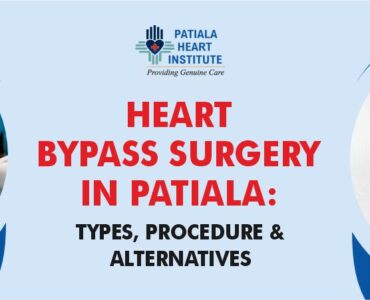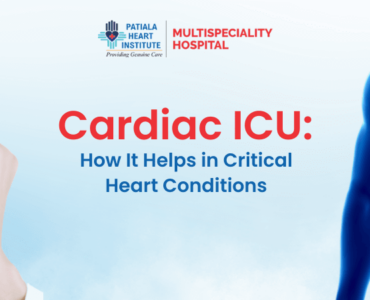High cholesterol, a well-known health problem, has declined in prevalence but remains a danger. High cholesterol is a leading cause of death worldwide and plays a vital role in heart disease.
Over the past decade, the percentage of adults with high cholesterol has dropped by an astounding 6%, from 18.3% down to just 12%.
Although this move is a positive step, high cholesterol remains one of the most severe health conditions, and prevention of heart disease is dependent on a comprehensive understanding of the condition.
Many lifestyle factors influence high cholesterol, including diet, exercise, and smoking. You can treat and prevent high cholesterol by adopting these lifestyles.
This article will examine the seven leading causes of high cholesterol. Before proceeding with the causes, let us first discuss what is high cholesterol?
What is high cholesterol?
High cholesterol is defined as blood fat (lipid) in the body. Each one of us has some cholesterol. Our bodies rely on it to stay healthy since every cell requires it. The liver produces cholesterol naturally as a fatty substance in the blood. Cholesterol is found in some of the foods we eat.
When your blood contains too much cholesterol, you have high cholesterol. It can increase the risk of heart attacks, strokes, and other circulatory conditions.
7 most common causes of high cholesterol :
Stress :
Chronic stress causes several health problems, including high cholesterol. Chronic stress is the primary cause of high cholesterol. Research shows that it lowers HDL (“good”) cholesterol levels and increases your risk for high LDL (“bad”) cholesterol.
Like cortisol and adrenaline, stress hormones can cause insulin resistance, resulting in high blood sugar. The liver may start pumping out more cholesterol, and fatty acids called triglycerides with time.
Medication :
Some drugs may have an unexpected effect on your cholesterol. These include certain birth control pills, retinoids, corticosteroids, antivirals, and anticonvulsants.
Some medicines for high blood pressure, such as diuretics and older forms of beta-blockers, can also raise your cholesterol. Talk to your doctor about any medications that you take. You may need a different dose or another drug altogether.
Obesity :
Overweight and obese people are more likely to suffer from high cholesterol, even if it is only 20% above a healthy weight for their age and height. The obesity-induced production of LDL cholesterol in your liver prevents your body from eliminating it once it has been released.
When you’re obese, your body responds differently to the fats you consume, so achieving good cholesterol levels requires a weight loss approach coupled with exercise and a healthy diet.
Smoking :
Smoking is another significant cause of high cholesterol. It lowers both good and bad cholesterol. There are two ways in which smoking induces cholesterol. First of all, it causes your HDL (good) cholesterol level to drop.
Secondly, it makes cholesterol stickier, creating a greater chance of sticking to artery walls. Due to smoking’s effect on constricted and damaged arteries, this sticking effect is even more frightening.
Liver Problems :
Your liver makes, processes, and breaks down cholesterol. When your liver doesn’t work correctly, it can affect your cholesterol levels.
One of the most common conditions is a nonalcoholic fatty liver disease (NAFLD) when extra fat is stored in the liver. It affects nearly 1 in 4 adults. The more severe form is known as NASH (nonalcoholic steatohepatitis). It causes the liver to swell and scar, leading to liver cirrhosis.
frightening.
Diet :
Saturated fats increase “bad” cholesterol, but it is lowered by foods rich in fiber and Omega-3 fats, such as whole grains, fruits, and vegetables.
Moreover, a diet to lower cholesterol doesn’t need to be highly restrictive or boring. Eat various vegetables and fruits, fish, lean meat, and low-fat dairy products to maintain cholesterol levels.
Too Much Alcohol
Excessive alcohol consumption not only causes high cholesterol but also causes liver damage. Drinking too much can increase your cholesterol, so be careful when you do so. Men who drink heavily – about 4½ drinks or more at one time – have higher cholesterol levels than those who do not.
Takeaway
High cholesterol, if left untreated, leads to severe health problems. This condition can be managed with the help of your doctor, and in many cases, some complications can be prevented. In many instances, high cholesterol has no symptoms.
At Patiala Heart Institute, you get the best treatment for high cholesterol from our highly efficient Cardiologist in Patiala who can easily guide you with the proper medication and treatment for your body.
Frequently Asked Question
What reduces cholesterol quickly?
A healthy lifestyle can significantly reduce high blood cholesterol levels. Even avoiding medication is not a solution because lifestyle modifications may not be sufficient to lower cholesterol levels. Some of them are: Modifying your diet to a healthy one Reducing saturated fats Replacing meat with fish Abandon trans-fats
What not to eat with high cholesterol?
Consuming a moderate amount of cholesterol is fine, but plenty of saturated fat is not. Saturated fat diets are associated with elevated blood cholesterol levels and an increased risk of heart disease. In addition to being high in cholesterol, the following foods also contain a lot of saturated fat and may be avoided: Full-fat dairy Red meat Processed meat Fried foods Baked goods and sweets
What type of lipid is cholesterol?
Lipids can be divided into several types, but cholesterol is perhaps the most familiar. A portion of cholesterol consists of lipids, and an amount of cholesterol consists of protein. It is for this reason that cholesterol is called a lipoprotein. Triglycerides are another type of lipid.







